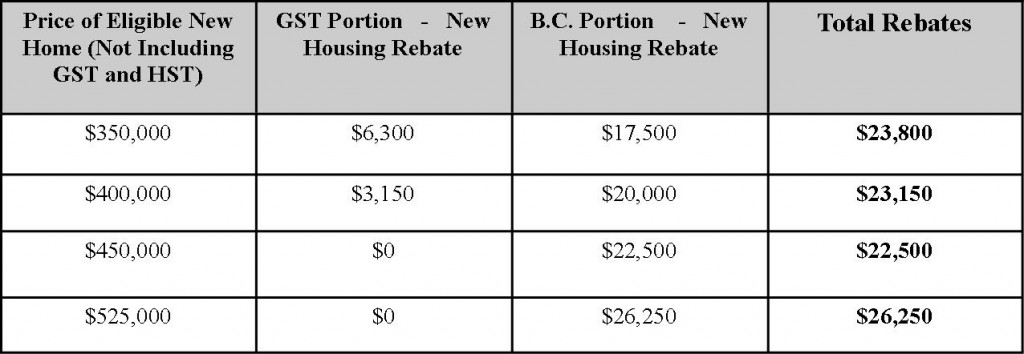How To Avoid The Most Common Buyer Errors When Purchasing Kamloops Real Estate

* Paying too much
* Losing a dream home to another buyer
* Buying the wrong home
When you have a systematic plan before you shop, you will be sure to avoid these costly errors. Here are some tips on making the most of your home purchase:
Making an offer on a home without being pre-qualified
Pre-qualification will make your life easier—so take the time to speak with a bank or mortgage broker. Their specific questions in regard to income, debt, etc., will help you determine the price range you can afford. It is an important step on the path to home ownership.
Not having a home inspection
Trying to save money today can end up costing you tomorrow. A qualified home inspector will detect issues that many buyers can overlook. You will have an idea about future repairs that will need to be made to the home and often you will be provided with a general idea of cost for those repairs.
Limiting your search to open houses, internet and newspaper ads
Many homes listed in magazines or newspapers have already been sold by the time the issue comes out in print. Open houses are a good way to start but once you are serious about finding a home a Realtor can provide you with up to date information on new listings that is not readily available to the general public. The public MLS website is 2-4 days behind the system Realtors have access to.
Choosing a Realtor who is not committed to forming a strong business relationship
Making a connection with the right Realtor is crucial. Choose a professional who is dedicated to serving your needs before, during and after the sale. There are a number of part time Realtors that sell Real Estate, would you want a part time surgeon operating on you?
Thinking there is only one perfect house out there
Buying a home is a process of elimination, not selection. New properties arrive on the market daily, so be open to all possibilities. Ask your Realtor for a comparative market analysis. This compares similar homes that have recently sold or are still for sale. This will give you a broader view of the market.
Not considering long-term needs
It is important to think ahead. Will the home suit your needs three to five years from now?
Not examining insurance issues
Purchase adequate home owner insurance. Advice from an insurance agent can provide you with answers to any concerns you may have.
Making an offer with too few subjects
It is important to have subjects in your contract to purchase a home. Typically buyers only think of subject to financing (or first mortgage) and subject to a home inspection. There are also a couple other important terms such as:
- Searching title to ensure it is free of any encumbrances.
- Reviewing and approving a Property Disclosure Statement provided by the selling party.
- Obtaining home insurance or fire insurance.
- Reviewing and approving a Building Information Request which will show any outstanding permits on a property.
- If a strata title property reviewing and approving all the strata minutes, bylaws, etc.
Ensure your best interests are protected.
Not knowing all the costs involved
Early in the buying process ask your Realtor and Mortgage broker for an estimate of closing costs. Title insurance and lawyer fees should be considered and many pre-pay responsibilities like property taxes, municipal fees and fuel adjustments must also be taken into account.
Not following through on due diligence
Buyers should make a list of any concerns they have relating to issues such as; crime rates, schools, power lines, neighbours, environmental conditions, etc. Ask the important questions BEFORE you make an offer on a home. Be diligent so that you can have confidence in your purchase.
There are many important steps when purchasing real estate. Click here to review the purchase process.
Click here for a printable Buyer’s guide.


 Grow ops in BC continue to plague communities and Kamloops is not immune to this problem. Each grow operation presents many risks to the communities they exist in, such as drug traffic through the community and community safety related to this traffic. Marijuana production continues to be a multi-billion dollar industry in B.C. with thousands of charges laid against operators each year. There are endless stories of grow op busts of all sizes but the problem persists in B.C. and doesn’t seem to be slowing down anytime soon.
Grow ops in BC continue to plague communities and Kamloops is not immune to this problem. Each grow operation presents many risks to the communities they exist in, such as drug traffic through the community and community safety related to this traffic. Marijuana production continues to be a multi-billion dollar industry in B.C. with thousands of charges laid against operators each year. There are endless stories of grow op busts of all sizes but the problem persists in B.C. and doesn’t seem to be slowing down anytime soon. I found this article on the Vancouver Sun online. I thought it was important to post because there are a number of pre-sale units in Kamloops for sale, specifically in Sun Rivers and the Dunes Golf Course in Westsyde (Westlinks). Buyers have to know what they are signing when committing to these pre-sale contracts. It’s important to get legal advice or involve your Realtor to help negotiate the pre-sale contract. Just because a developer is asking ‘X’ amount for a pre-sale home, doesn’t mean that the price and terms are not negotiable. After all, real estate purchases are negotiable. Buyers have to get educated and informed when it comes to pre-sales. It is very easy to get caught up with the beautiful, colorful displays and convincing sales people. I have included the article below written by Derrick Penner.
I found this article on the Vancouver Sun online. I thought it was important to post because there are a number of pre-sale units in Kamloops for sale, specifically in Sun Rivers and the Dunes Golf Course in Westsyde (Westlinks). Buyers have to know what they are signing when committing to these pre-sale contracts. It’s important to get legal advice or involve your Realtor to help negotiate the pre-sale contract. Just because a developer is asking ‘X’ amount for a pre-sale home, doesn’t mean that the price and terms are not negotiable. After all, real estate purchases are negotiable. Buyers have to get educated and informed when it comes to pre-sales. It is very easy to get caught up with the beautiful, colorful displays and convincing sales people. I have included the article below written by Derrick Penner.